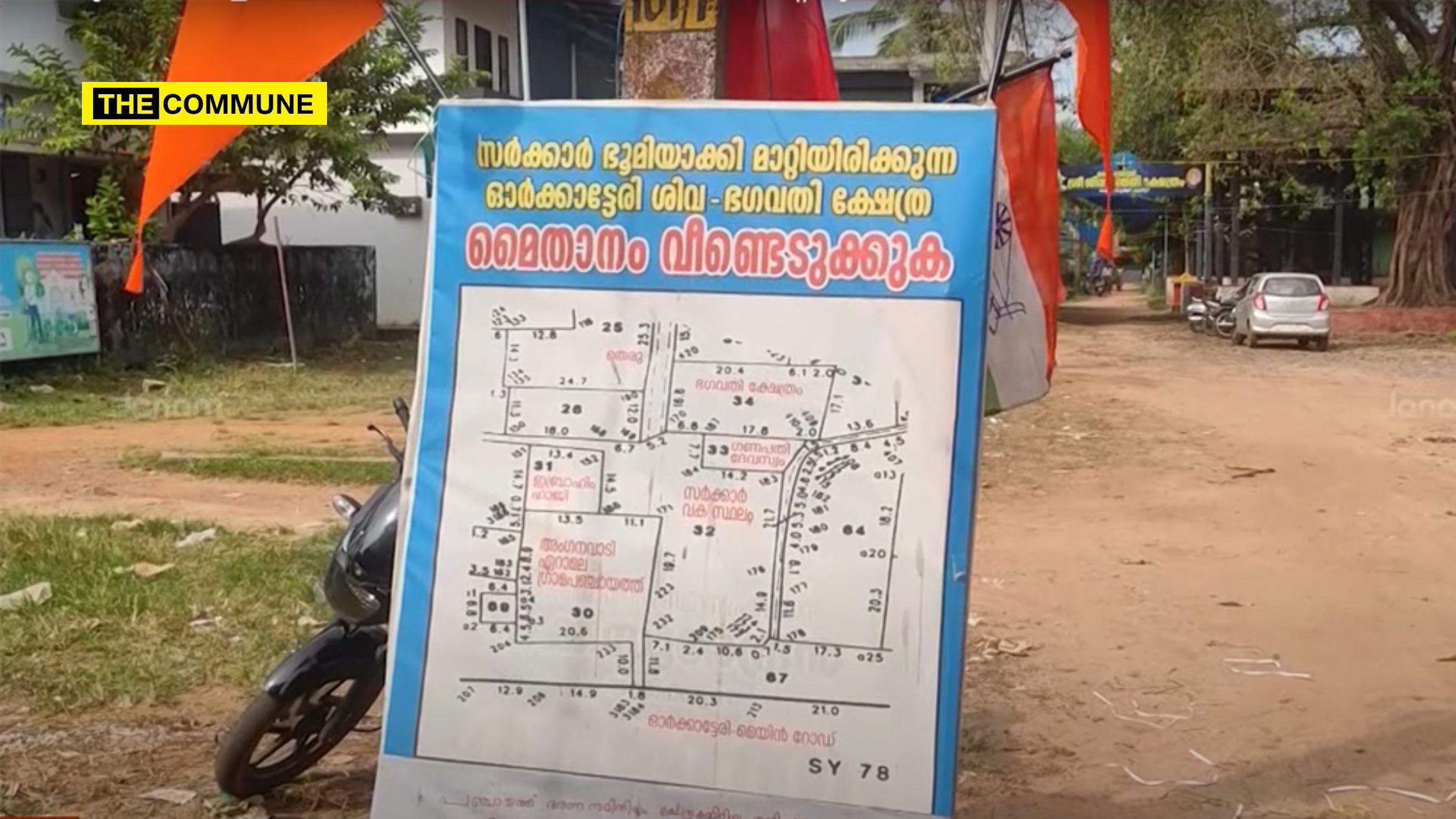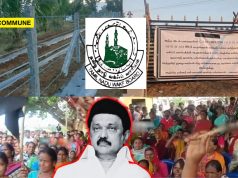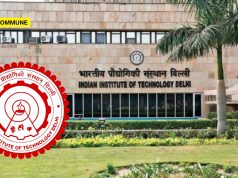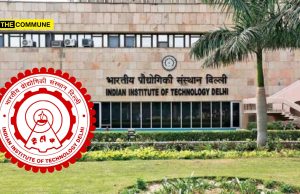
Image Source: Janam TV
The local panchayat’s encroachment on Ganapati temple land in Vadakara Orchateri has triggered widespread protests among devotees. The panchayat, led by the Muslim League with the support of the Revolutionary Marxist Party (RMP), is accused of adding the temple land to its asset register under dubious circumstances. Devotees allege this move aims to reclassify the land as government property to facilitate the construction of a public toilet.
In 2023, the panchayat first attempted to take over the temple land, which the devotees thwarted. Subsequently, the land was reportedly acquired using forged documents, allegedly with the connivance of the then temple management committee. Despite claiming ownership, the panchayat has failed to produce legal documents supporting its claims.
Documents obtained from the Kozhikode archives later confirmed the Vadakara land belonged to the Orkattery Ganapati temple. Despite this evidence and ongoing court proceedings, the panchayat continues its efforts to construct a toilet on the temple premises, even though alternative locations are available.
Similar Case In Cherpulassery, Palakkad
A similar controversy unfolded at the Sree Ayyappan Kavu Temple in Cherpulassery, Palakkad. Under the Kerala government’s “100-Day Karma Program,” the Cherpulassery Municipality constructed a building with public toilets on temple property. This led to a petition filed by Hindu Aikya Vedi President P.N. Sreeraman, resulting in the Kerala High Court intervening.
In January 2024, the High Court deemed such constructions legally impermissible, emphasizing that temple lands controlled by the Malabar Devaswom Board cannot be used for public facilities intended for non-devotees. The court highlighted that prominently displaying the municipality’s name on the structure further violated regulations.
The court criticized the trustees of Cherpulassery Sree Ayyappan Kavu for failing to safeguard the temple’s interests and properties. It directed the Malabar Devaswom Board to exercise strict supervisory control and prevent any misuse of temple land. Referring to the construction under the “Suchithwamithra Toilet Construction Project,” the court underscored that acts of negligence akin to “fence eating the crops” must be addressed firmly.
The municipality was ordered to halt the operation of the toilet block. The court also instructed the Devaswom Board to decide on the reimbursement of construction costs incurred by the municipality within two months.
The Cherpulassery region, often referred to as the “Sabarimala of Malabar,” has seen significant demographic changes and rising criminal activities. Devotees have raised concerns about the area becoming a hub for crimes like extortion, smuggling, and drug peddling. The arrest of notorious criminal Charal Faisal under the Kerala Anti-social Activities (Prevention) Act (KAAPA) further highlights these issues.
The developments in Vadakara Orchateri echo the concerns raised in Cherpulassery. Devotees at both locations remain resolute in protecting temple lands, emphasizing that religious sanctity cannot be compromised for public infrastructure projects. The Kerala High Court’s rulings have provided a precedent, reinforcing the legal and moral responsibility to safeguard temple properties.
As the panchayat and devotees in Vadakara prepare for further legal battles, the larger question of respecting religious institutions while addressing public needs remains a contentious issue in Kerala.
Subscribe to our channels on Telegram, WhatsApp, and Instagram and get the best stories of the day delivered to you personally.




